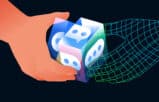Ethics counsel Megan Zeviah had advice for setting up a better system for taking, keeping and finding your lawyer notes for clients.

Key Takeaways
- Lawyer Notes Matter: Taking clear notes is key to managing client disputes, state bar requirements and non-client interactions. Notes help lawyers track their work, manage client relationships and defend against ethics claims.
- Note Taking Strategies: Using a consistent note taking system – digital tools, voice to text, structured notes – will make note taking more efficient and accurate. Get the details and keep it organized.
- Keep and File: Make sure notes are accessible when you need them. Use cloud storage, apps and filing systems to not lose information and keep your practice organized.
Yellow legal pads, containing what at least to a casual observer might seem unintelligible scribbles, abound in most lawyers’ offices. Of course, good legal business practice dictates that we take copious and clear lawyer notes to identify work we have done or still need to do, who we have spoken with, when and about what. But it is also critical to maintaining compliance with ethics rules and understanding the law.
Three Ways Your Notes Keep You On Track and in Compliance
1. Managing client disputes
If a client ever comes back to you with a question about the advice you have given, your notes should reflect when you spoke to them, what you talked about, and what you told them. Do your scrawls on multiple legal pads fit this description? In all likelihood, no. Clear, detailed notes will give you this information and help you manage any questions that come up from clients.
2. State bar questions
State bar investigations often focus on whether the attorney fulfilled his duty of competence. Violation of this duty can be alleged in countless ways, all of which are basically second-guessing the work you did. For example, an allegation of failure to act with competence might be that you failed to interview enough or certain witnesses in a case. Detailed notes of every contact, attempt to contact, conversation or correspondence with every witness in a case will help protect you when defending against such allegations. The same is true of legal and factual research performed, strategy analyzed and discussed, or any other aspect of a representation.
3. Detailing contact with non-clients
In an earlier column, I discussed non-engagement letters. Just as these letters can help protect you from ethics questions involving someone who did not ultimately hire you, so too can good notes. For instance, detailed notes of a contact with a potential client will help you analyze whether you spoke to that person enough, and on what matter, to conflict you out of a later client engagement. Your notes will be helpful if that person ever comes back and accuses you of misconduct or says you had a client relationship. The notes can even come in handy when following up with them on the business development side if you have added that person to your contacts list.
Setting Up a Practice of Better Lawyer Note-Taking
It is easy to see how well-detailed notes can be helpful, but seeing their value does not make it easy to take them. After all, we all know the value of exercise but we aren’t at the gym every day. Spending your own time to develop effective note-taking strategies is crucial for success.
If you want to set up a better system for note-taking, try incorporating these tasks into your routine.
- After any client phone call, spend five minutes writing or dictating in prose the thrust of your conversation. Hit the high points, and you’ll already be far ahead of your chicken-scratch notes. If you’re concerned about a relationship with a particular client, you could even send these lawyer notes to them in an email.
- When keeping a conflicts database, include a “notes” field where you can add details of what you discussed with any potential client. Make it an unlimited text field so you are not forced (or tempted) to put in just a few words. If you’re using a program from which you print and this particular field is long and unwieldy, set your software not to print this field. Remember, the information is not for frequent use but will be helpful at certain specific times in the future. It does not need to be at your fingertips at all times.
- Use voice-to-text transcription technology. Your phone probably has the capability already. If you are out of the office when you have a call with a client, chat yourself up on your phone and dictate a note to include in the client’s file.
- Maintain an electronic lawyer notes file for each client. Every electronic client file should have some of the same basic folders and documents, including a folder for all correspondence. In that folder, create a file for every client called “Notes.” Supplement handwritten notes with your electronically maintained detailed summaries of your notes. Electronic documents are faster and easier to create, and thus more likely to be created than lengthy handwritten notes.
Note-Taking Tips
Note-taking is a skill lawyers need to get good at, so they can capture the important stuff, identify the key points and recall the details. Here are some note-taking tips:
- Active listening: Listen to the speaker and focus on the main points being made. So you capture the important stuff and don’t get lost in the detail.
- Use a system: Use a consistent method, like the Cornell Note-taking System or the Outline Method. These systems help you structure your notes so they are easy to review and understand.
- Headings and subheadings: Break your notes into sections and use headings and subheadings to group the information. So you can find specific info when you need it.
- Bullet points and numbered lists: Highlight the key points and make your notes more readable by using bullet points and numbered lists. This way you can scan your notes quickly for the important stuff.
- Review and summarise: Review your notes regularly and summarise the main points to reinforce your understanding. This helps lock the info into your brain and makes sure you’ve captured all the important details.
What to Include in Your Notes
When taking notes, make sure to include the following:
- Date and time: Always record the date and time of the meeting, conversation or event. This helps you track the timeline and gives context to your notes.
- Attendees: List the names and titles of attendees, clients, colleagues etc. Who was there is important for context and responsibilities.
- Points: What were the key points discussed, decisions, actions, next steps. This way you capture the most important and can refer back to it later.
- Tasks: List any tasks assigned to you or others. Clearly noting these tasks ensures nothing gets missed and all responsibilities are tracked.
- Follow up: What are the follow up actions or deadlines. This way you stay on top of your commitments and all steps are taken after the meeting or conversation.
Tech for Note-Taking
Tech can be a great tool for note-taking, making it easier to capture, organize and review. Here are some ways to use tech for note-taking:
- Digital note-taking apps: Use digital note-taking apps like Evernote or OneNote to capture and organize your notes. They have features like tagging, searching and syncing across devices so your notes are more accessible and organized.
- Audio recording: Use audio recording software to record meetings and conversations and then transcribe the recordings into written notes. That way you capture everything and can go back to the exact words spoken.
- Cloud storage: Store your notes in the cloud using services like Google Drive or Dropbox so you can access them anywhere. Cloud storage is a secure and convenient way to keep your notes organized and accessible.
- Collaboration tools: Use collaboration tools like shared documents or project management software to share notes and work with others. That way everyone is on the same page.
- Search: Use search to quickly find specific notes or info. This is super helpful when you need to find something from a past meeting or conversation.
So there you go! Use these and you’ll have detailed, organized and accessible notes and be able to serve your clients better and stay on top of your practice.
A Reminder: Once Lawyer Notes are Written, Maintain Them
No matter how useful your notes may be, they are rendered wholly useless if you lose them. We have all had that feeling of panic when you know you spoke to someone, and you must have written it down, but you cannot locate that random piece of paper (or napkin?) anywhere. Whatever the system you use to maintain your notes — whether on a single legal pad for each client, or by tearing off your lawyer notes and putting them in a folder, or scanning them into your computer — make sure that you file those notes away every time. Capturing and organizing your ideas effectively is crucial for maintaining a well-structured and efficient practice.
If you no longer have your notes when they’re needed, you may as well have never written them at all, they are rendered wholly useless if you lose them. We have all had that feeling of panic when you know you spoke to someone, and you must have written it down, but you cannot locate that random piece of paper (or napkin?) anywhere. Whatever the system you use to maintain your notes — whether on a single legal pad for each client, or by tearing off your lawyer notes and putting them in a folder, or scanning them into your computer — make sure that you file those notes away every time.
If you no longer have your notes when they’re needed, you may as well have never written them at all.
Illustration ©iStockPhoto.com
Subscribe to Attorney at Work
Get really good ideas every day for your law practice: Subscribe to the Daily Dispatch (it’s free). Follow us on Twitter @attnyatwork.
















